
JOURNAL OF MICROBIOLOGY
Scope & Guideline
Leading the charge in microbiological research and innovation.
Introduction
Aims and Scopes
- Microbial Pathogenesis and Antibiotic Resistance:
Research on the mechanisms of pathogenicity in bacteria, fungi, and viruses, with a focus on understanding antibiotic resistance mechanisms and the development of new therapeutic strategies. - Environmental Microbiology and Bioremediation:
Studies on microbial communities in different environments, emphasizing their roles in biogeochemical cycles, pollution remediation, and sustainable practices. - Food Microbiology and Safety:
Exploration of microbial interactions in food systems, including fermentation processes, spoilage, and pathogenic microorganisms affecting food safety and quality. - Clinical Microbiology and Infectious Diseases:
Investigation of microbial infections in humans and animals, including epidemiological studies, diagnostics, and treatment modalities. - Probiotics and Microbiota Studies:
Research on beneficial microorganisms and their applications in health, agriculture, and industry, focusing on their roles in gut health and disease prevention. - Biotechnology and Microbial Applications:
Innovative applications of microbiological research in biotechnology, including the production of biofuels, enzymes, and bioactive compounds.
Trending and Emerging
- Microbiome Research:
There is a growing emphasis on microbiome studies, particularly in relation to human health, agriculture, and environmental sustainability, highlighting the complex interactions between microorganisms and their hosts. - Antimicrobial Resistance Mechanisms:
Research focused on understanding the genetic and biochemical mechanisms behind antimicrobial resistance is on the rise, driven by the urgent need to address the global health crisis of drug-resistant infections. - Novel Antimicrobial Agents and Alternatives:
Increasing interest in discovering and developing new antimicrobial agents, including those derived from natural products, is evident as researchers explore alternatives to traditional antibiotics. - Viral Pathogenesis and Emerging Viruses:
The COVID-19 pandemic has accelerated research on viral pathogens, especially concerning their transmission, evolution, and impact on public health, with a focus on emerging infectious diseases. - Synthetic Biology and Genetic Engineering:
Research integrating synthetic biology approaches to engineer microorganisms for specific applications, such as bioremediation and biofuel production, is gaining significant traction. - Plant-Microbe Interactions:
There is a rising interest in understanding the interactions between plants and microorganisms, particularly in enhancing plant growth and resilience against pathogens.
Declining or Waning
- Traditional Antibiotics Research:
Research focused solely on traditional antibiotics is declining as the field shifts towards exploring novel compounds, combination therapies, and alternative strategies to combat antibiotic resistance. - Basic Taxonomic Studies:
The focus on basic taxonomic classification of microorganisms has diminished as more researchers pursue functional and ecological aspects of microbial communities instead. - Single-Organism Studies:
There is a waning interest in studies that focus only on single microorganisms in isolation, with a growing preference for studies that examine interactions within complex microbial ecosystems. - In Vivo Animal Studies:
Research involving extensive in vivo animal studies is declining as ethical considerations and the push for alternative methods rise, leading to a focus on in vitro and computational approaches. - Fungal Pathogens in Agriculture:
The frequency of studies specifically addressing fungal pathogens in agricultural settings is decreasing as research broadens to include integrated pest management and ecological approaches.
Similar Journals

Microorganisms
Championing high-quality research in microbiology.Microorganisms is a leading open-access journal published by MDPI based in Switzerland, catering specifically to the rapidly evolving fields of microbiology and virology. Since its inception in 2013, the journal aims to foster the dissemination of high-quality research through its comprehensive and interdisciplinary platform, with a particular focus on both fundamental and applied microbiological sciences. Contributing to its esteemed reputation, Microorganisms holds a commendable Q2 ranking in the categories of Microbiology and Virology, as well as in Medical Microbiology, highlighting its significance in the academic community. With a consistent impact, evidenced by its rankings in Scopus—such as rank #25 in Virology and #56 in Microbiology—the journal serves as an invaluable resource for researchers, professionals, and students looking to stay at the forefront of microbiological research. As an open-access journal, Microorganisms ensures that vital research findings are readily available to a global audience, promoting collaboration and innovation in the study of microbial life and its implications for health and disease.

CURRENT MICROBIOLOGY
Fostering Excellence in Microbiological ScholarshipCURRENT MICROBIOLOGY, published by SPRINGER, is a renowned journal that serves as a critical platform for the dissemination of cutting-edge research in the field of microbiology. With an ISSN of 0343-8651 and an E-ISSN of 1432-0991, this journal contributes significantly to the scientific community by covering a diverse range of topics from applied microbiology and biotechnology to various aspects of medicine. Currently operating an impact factor that places it within the Q2 quartile in both applied microbiology and biotechnology and medicine (miscellaneous), along with a Q3 ranking in microbiology, CURRENT MICROBIOLOGY is recognized for its valuable contributions to these dynamic fields. This journal, which has documented the evolution of microbiological research since its inception in 1978, provides an essential venue for researchers, professionals, and students alike to explore innovative studies and advances. Although it does not offer open access, the journal remains a pivotal resource within its category, complementing the ongoing growth and exploration of microbiology from its headquarters at One New York Plaza, Suite 4600, New York, NY 10004, United States. Its Scopus rankings highlight its reputable standing, making it a key publication for anyone aiming to stay at the forefront of microbiological science.
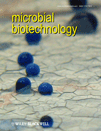
Microbial Biotechnology
Fostering collaboration in the realm of microbial sciences.Microbial Biotechnology, published by WILEY, stands at the forefront of innovation in the field of applied microbiology and biotechnology, showcasing cutting-edge research and advancements within both academic and industrial contexts. As an Open Access journal since 2012, it ensures that high-quality research is easily accessible to researchers, professionals, and students globally, promoting knowledge sharing and collaboration. With an impressive impact, the journal holds a Q1 ranking in its categories—Applied Microbiology and Biotechnology, Biochemistry, Bioengineering, and Biotechnology—demonstrating its significance in the scientific community. The journal currently boasts a strong Scopus ranking in several relevant disciplines, including a top 10% position in Applied Microbiology and Biotechnology, highlighting its critical role in disseminating influential findings. Designed to foster dialogue and advance technology within the microbial sciences, Microbial Biotechnology is an essential resource for anyone committed to leveraging microbial processes for sustainable and innovative solutions.

Malaysian Journal of Microbiology
Empowering Scientists: Your Gateway to Microbiology DiscoveriesMalaysian Journal of Microbiology is a prestigious open-access journal dedicated to advancing the field of microbiology, published by the Malaysian Society for Microbiology. Since its inception in 2005, this journal has become an essential platform for researchers and practitioners, facilitating the dissemination of innovative studies in applied microbiology, biotechnology, and infectious diseases. Based in Penang, Malaysia, this journal not only focuses on local microbiological research but also positions itself within the broader global scientific community. Although currently placed in the Q4 category in several relevant fields—including Applied Microbiology and Biotechnology, Infectious Diseases, and Medical Microbiology according to the 2023 Scopus rankings—it plays a crucial role in encouraging novel research and fostering collaboration among scientists. The journal encourages submissions that contribute to the understanding of microbial processes, disease mechanisms, and novel biotechnological applications, thereby supporting the continuous growth of knowledge in microbiology. With open access since its launch, the Malaysian Journal of Microbiology ensures that all published works are freely available to the public, enhancing their visibility and impact within the scientific community.
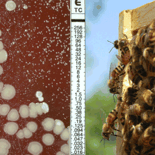
mBio
Unlocking groundbreaking discoveries in microbiology and virology.mBio is a premier, peer-reviewed open-access journal published by the American Society for Microbiology, dedicated to advancing the field of microbiology and virology. With an impressive impact factor and a commendable standing within the top quartiles (Q1) of both microbiology and virology categories as of 2023, mBio offers a dynamic platform for researchers and professionals to disseminate high-quality, rigorous scientific findings. Since its inception in 2010, it has served as a vital resource for the global scientific community, facilitating open access to groundbreaking research that spans diverse topics within microbiology. With a Scopus ranking of #28 out of 182 in Microbiology and #16 out of 80 in Virology, mBio significantly influences ongoing research trends and informs best practices in the field. Its commitment to open-access publishing allows for widespread visibility and accessibility, ensuring that critical discoveries reach a broad audience, including students and academics eager to contribute to, and learn from, cutting-edge science.

INDIAN JOURNAL OF MICROBIOLOGY
Innovating Solutions Through Microbial ResearchINDIAN JOURNAL OF MICROBIOLOGY, published by Springer, serves as a vital platform for the dissemination of cutting-edge research in the field of microbiology. With an ISSN of 0046-8991 and an E-ISSN of 0973-7715, this esteemed journal invites contributions that span various disciplines within microbiology, encompassing both fundamental studies and applied research that can impact health, environment, and industry. Recognized in the Q3 category in Microbiology for 2023, and ranking #80 out of 182 in Scopus’ Microbiology category, it reflects its commitment to quality and significance in the academic community. Authors and researchers benefit from the journal's comprehensive review process, which enhances the visibility and reach of their work. While no open access options are currently offered, the INDIAN JOURNAL OF MICROBIOLOGY remains a premier choice for those aiming to contribute to the ongoing dialogue in microbiological studies, ensuring that knowledge continues to evolve and thrive.
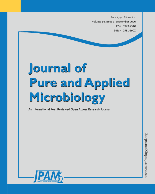
Journal of Pure and Applied Microbiology
Transforming Microbial Discoveries into Real-World ApplicationsJournal of Pure and Applied Microbiology, published by DR M N KHAN, is an esteemed Open Access journal that has been dedicated to advancing the frontiers of microbiological research since its inception in 2007. Located in Bhopal, Madhya Pradesh, India, this journal presents a platform for researchers and professionals in the fields of Applied Microbiology and Biotechnology, offering insights that span a diverse range of topics critical to both scientific progress and industrial applications. As of 2023, the journal is categorized in the Q3 and Q4 quartiles, demonstrating its relevance and growing impact within the community—ranking #219 in Biochemistry, Genetics and Molecular Biology and #93 in Immunology and Microbiology. With an emphasis on accessibility, the journal has embraced an Open Access format since 2017, allowing for a wider dissemination of knowledge. By publishing high-quality research, the Journal of Pure and Applied Microbiology plays a pivotal role in fostering innovation and collaboration among researchers, students, and industry professionals alike.
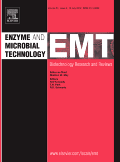
ENZYME AND MICROBIAL TECHNOLOGY
Catalyzing Progress in Bioengineering and BiotechnologyENZYME AND MICROBIAL TECHNOLOGY, a premier journal published by Elsevier Science Inc, serves as a pivotal platform for researchers and professionals dedicated to exploring the dynamic intersections of microbiology, biochemistry, and bioengineering. With a rich publication history dating back to 1979 and converging until 2024, this journal has established itself within the Q2 quartile rankings across multiple categories, including Applied Microbiology and Biotechnology, Biochemistry, Bioengineering, and Biotechnology, highlighting its influential role in advancing scientific discourse. It holds impressive Scopus rankings, where it is recognized in the 79th percentile for Applied Microbiology and Biotechnology and ranks favorably in related fields, making it a valuable resource for academic and industrial researchers looking to stay abreast of the latest developments. Although it does not currently offer Open Access options, ENZYME AND MICROBIAL TECHNOLOGY remains an essential read for anyone invested in the biotechnological applications of enzymes and microorganisms.
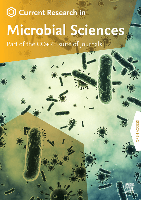
Current Research in Microbial Sciences
Advancing the Frontiers of Microbial KnowledgeCurrent Research in Microbial Sciences is a distinguished peer-reviewed journal published by Elsevier, focusing on the dynamic and rapidly advancing fields of microbiology and infectious diseases. With an ISSN of 2666-5174, this journal has established itself as an essential resource for researchers, professionals, and students alike, offering the latest findings and insights from 2020 to 2024. The journal holds a significant position in the academic landscape, achieving a Q2 ranking across multiple categories, including Immunology and Microbiology, Infectious Diseases, and Medical Microbiology, demonstrating its impact in these critical areas of study. With impressive Scopus rankings—such as being placed in the 94th percentile for Immunology and Microbiology—current research is well-supported by a thriving scientific community. Although the journal is not open access, it serves as a vital platform for disseminating high-quality research and fostering collaboration within the microbial sciences. Engaging with this journal enables professionals and researchers to stay abreast of innovations and contribute to the collective body of knowledge that shapes our understanding of microbial interactions and infectious diseases.
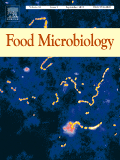
FOOD MICROBIOLOGY
Unraveling microbial mysteries for a safer food future.FOOD MICROBIOLOGY is a premier journal, published by Academic Press Ltd - Elsevier Science Ltd, dedicated to advancing the field of food science and microbiology. With an impressive impact factor and recognition as a Q1 journal in Food Science and a Q2 journal in Microbiology, it holds a significant position in the scientific community, emphasizing research that explores microbial phenomena in food products. Established in 1984, the journal continues to thrive with converged coverage until 2025, making it an essential resource for researchers, professionals, and students aiming to deepen their understanding of food-related microbiological issues. While it operates under traditional access options, the journal is highly regarded for its rigorous peer-review process and impactful contributions to agricultural and biological sciences, ranking #26 in Food Science and #22 in Microbiology according to Scopus. Researchers are encouraged to submit their findings that impact food safety, quality, and preservation, fostering a collaborative environment that generates knowledge pivotal for the food industry and public health.